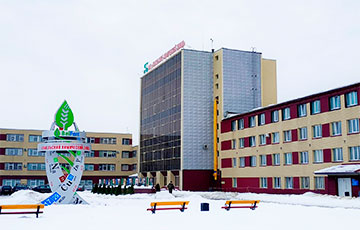The New Year Began With Bad News For Lukashists
12- ARTSIOM CHERNIKAU
- 15.01.2023, 14:06
- 48,796

The regime has deprived itself of loopholes for foreign currency earnings in its budget.
The Lukashists began 2023 with extremely unpleasant news for them: the Homiel Chemical Plant (HCP) lost 95% of its exports.
Although this enterprise was by and large focused on the domestic market, foreign consumers of fertilizers brought a significant share of the profit: Ukraine, Poland, Lithuania, Latvia, Russia and Romania. Export gave about 70% of the profit and 360-430 thousand tons of products were shipped annually.
The plant went through several colossal upgrades in order to get out of the protracted crisis that began in the 1990s and continued in the 2000s. It went through difficult times in 2013 and began to receive a stable profit, and by 2016 the plant entered the top three most profitable joint-stock companies in the region. Only the Mazyr Oil Refinery and Gomeltransneft Druzhba were even more profitable. Successful development over 10 years, when even such giants as Hrodna Azot OJSC often ended up with losses, gave the Homiel Chemical Plant hope for the future. They were making loud claims of a 10.3% increase in profits at the end of 2019, despite rising costs.
Ukraine was one of the largest sales markets and resellers for this plant. On November 17, 2021, BNH Ukraine LLP decided to rename it to Belfert Ukraine LLP and the type of activity changed from the sale of auto accessories to the sale of chemical products. The founders of the company, which fell under the sanctions, left the former owners of the Belarusian Oil Trading House RUE and Naftan JSC Immediately after that. The Homiel Chemical Plant OJSC became the only founder instead. No international sanctions have yet been imposed against it. Simultaneously with the change of ownership, the organization also changed its legal address. In fact, it moved to the office of the BNH-Group LLP, the owner and director of which was the former head of the administration of the Savetski District of Homiel, Aleh Vialichka. Now he began to manage two enterprises of the Belneftekhim concern in the Ukrainian market. The company's annual revenue in the Ukrainian market amounted to 4.95 billion hryvnia, which corresponds to about $190 million. A share of this amount was also the resale of products to the Western market, which included potash that fell under the sanctions.
Napoleonic plans for the modernization of workshops in 2023-2024 sunk into oblivion on February 24, 2022. The largest fertilizer market was lost due to Lukashenka's participation in the war against Ukraine.
Already two weeks after the outbreak of hostilities, the workload decreased by 1/3, and the warehouses were fully filled. Lukashenka has deprived himself of loopholes for foreign currency earnings in the budget with his participation in the war.
Despite the fact that Russia is among the countries that buy HCP's products, for the whole of 2022, it was not possible to diversify fertilizer supplies at the expense of the Russian Federation. The point is that they have their own producers who will not share their market, moreover, they have attracted the former customers of the Homiel plant. And in order to maintain its share in the European market, the company had to remove the potash component from NPK fertilizers (nitrogen, phosphorus, kalium), which were under sanctions. Instead of the NPK complex, they began to supply only NP (nitrogen, phosphorus), which reduced competitiveness and demand for products.
The Homiel Chemical Plant is forced to abandon Western technical schemes, due to the impossibility of purchasing the necessary components for the repair of equipment, as well as many Belarusian enterprises, due to sanctions affecting technology. For example, during the modernization of sulfuric acid production, American technology had to be abandoned and switched to an alternative Russian one. Which leads the company to new expenses.
The impossibility of diversifying the market threatens the entire petrochemical industry in Belarus. The rising cost of Belarusian products, catastrophically low demand, lower prices due to an overabundance of fertilizers and the inability to compete are four reasons leading to the collapse of the enterprise. There are more than a hundred new modernization projects at the moment, and the transition from American technologies to Russian ones is becoming another nail in the coffin of the petrochemical industry.
Artsiom Chernikau, especially for the Basta Telegram channel








